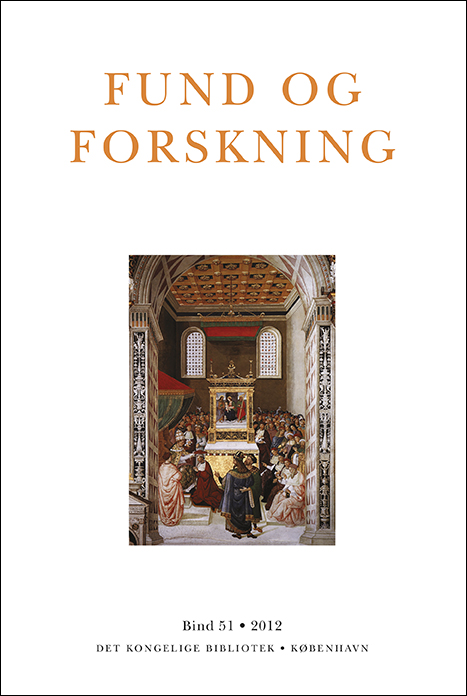“At tale om fornödne ting, og at give nogen idée om historiens hærlighed” – Om Ludvig Holbergs lærebog verdenshistorie, Synopsis historiæ universalis (1733)
DOI:
https://doi.org/10.7146/fof.v51i0.41275Abstract
Among the lesser known works by the Danish-Norwegian enlightenment writer Ludvig Holberg (1684–1754) is a brief world history in Latin (208 pages in octavo), entitled Synopsis historiæ universalis. It was written as a textbook for pupils in the Latin schools and students at the University.
Holberg structured his account in accordance with the traditional Protestant model of world history, according to which the world had been ruled by four successive world monarchies (the Assyrian, the Persian, the Greek and the Roman). The model had been promoted first and foremost by Melanchthon in the 16th century. However, the model was blatantly inadequate even in Holberg’s day because of its narrow European horizon. The article asks, as a point of departure, why Holberg nevertheless found the model suitable as structuring principle of his world history.
To some extent Holberg himself provides an answer in his preface. The model, he explains, made it possible to outline the history of the world in a clearly structured way and to focus on topics that he considered important and useful for young students to reflect on. It is his aim, he declares, to impart on the young students ‘a love of history’, and he distances himself from other textbooks on world history that contain nothing but dry lists of rulers.
Turning to the text itself, the article attempts to demonstrate how Holberg put these intentions into practice. In his account of the four world monarchies and (in the latter half) of the European nations, there are a number of recurrent themes: political institutions, reasons for changes of power, trade, religion, law, cultural and intellectual characteristics of a given society, etc. These are subjects typical of enlightenment historiography – including Holberg’s own works – and it was, paradoxically, in order to give proper attention to these enlightenment themes that Holberg limited his account of world history to the world encompassed by the old-fashioned model of the four monarchies.
However, also in another respect Holberg’s Synopsis continued the Protestantic tradition from Melanchthon: it stresses the depravity of the papacy from late antiquity onwards. With all its enlightenment themes, often pedagogically illustrated through entertaining anecdotes, Holberg’s textbook still conveys an unwavering Lutheran view of history to its young readers.


